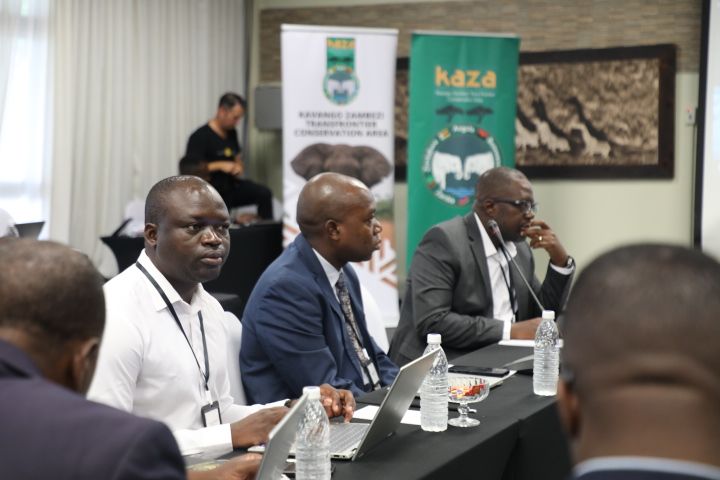
Strengthening sustainable partnerships for a stronger KAZA!
The Kavango Zambezi Trans Frontier Conservation Area (KAZA TFCA) convened in Livingstone, Zambia, for the ‘Partner Engagement Workshop’ aimed at fostering collective action for a sustainable KAZA.
The workshop brought together KAZA Partner States, Regional Organisations, Basin Organisation representatives, International Cooperating Partners and various conservation and development-focused implementing partners (NGOs) active in the KAZA landscape.
The workshop has the following objectives:
– improve the depth of understanding of KAZA’s guiding frameworks, including assessments, strategies and action plans that identify priority action areas (thematic and geographic),
– create a space for open, transparent and frank discussions to better understand and navigate the current challenges that exist for Partner States, ICP and NGO partners and stakeholders, being able to plug into the KAZA grid,
– create a high-level understanding of the existing funding and financing landscape, including interest and priority areas of various ICPs and implementing partners,
– identify existing and potential areas for collaboration between various partners, based on their comparative strengths, advantages and experience and in the service of KAZA, and
– Develop a ‘Charter for Change, Investment and Collective Accountability’, amongst ICPs and implementing partners, outlining key principles to guide collaboration in the furtherance of KAZA’s objectives.
This workshop was built on past collaborations, including the inaugural donor roundtable of 2021, and responds to the evolving geopolitical and financial landscape that shapes investment in KAZA. As global priorities shift, KAZA and its partners are coming together to strengthen alignment, collaboration, and amplify impact.
Over the past days, partners dived into KAZA’s guiding frameworks, reflected on challenges in working into the ‘KAZA energy grid,’ and explored how to channel investments toward areas where they can make the greatest difference.
With voices from Partner States, technical experts, NGOs, and international funders all in one room, the workshop set the stage for key priorities, stronger collaboration, and new ways for financing conservation and sustainable development across the KAZA landscape.



